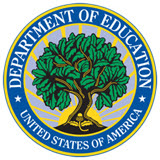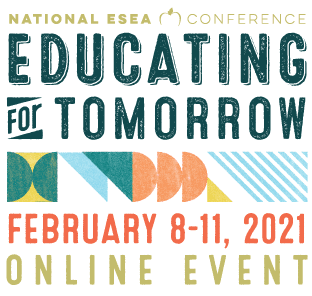Message From Director Laurie VanderPloeg

Hello, Stakeholders.
I’ve said before that we are in a time like no other. COVID-19 is impacting every area of our lives. The stress that we may feel because of isolation from friends and family, and the general uncertainty that we live in is real. These feelings are real for our children too. We are seeing increased mental health challenges for children, youth, and families due to the pandemic. As such, schools, communities, families, and OSEP are prioritizing addressing the mental health needs of infants, toddlers, children and youth, including those with disabilities.
OSEP staff recently engaged in a facilitated conversation about meeting the needs of our nation’s youth while taking care of ourselves and others. The facilitators, Susan Barrett and Lucille Eber of OSEP’s PBIS Center, presented compelling information regarding the impact of COVID-19 on the mental health of our children. Citing from a Washington State Department of Health state-wide high-level analysis of forecasted behavioral health impacts from COVID-19, Barret and Eber presented concerning information. As examples, the analysis indicated a likely phased surge in behavioral health symptoms and an increased prevalence of anxiety related issues occurring immediately through the next 2-3 months. The analysis also revealed that not all individuals with mental health concerns were receiving treatment before the pandemic. And I surmise that the number has only decreased since the pandemic.
So, what should we do? Barret and Eber used evidence from disaster recovery in New Orleans and Puerto Rico as examples of how we can meet this challenge. Using a public health approach, we must increase cross-agency collaboration. We must be innovative and maximize our use of virtual technology. We also must be “real” about first meeting the emotional needs of our children to ensure functional and academic recovery. I know that I’ve painted a bleak picture, but I leave you with a series of questions from the OSEP facilitated conversation to consider as we work together to turn the tide.
Moving into 2021, I ask you —
- What actions can state/district/early intervention leadership teams (leadership teams) take to ensure schools and early intervention programs and providers are actively prioritizing and promoting the mental wellness of children?
- What actions can leadership teams take to ensure that early intervention providers, educators, and related services providers feel competent and confident on how to a) respond to children who are reacting to trauma, and b) teach resiliency skills as a critical part of their instruction?
Finally, it is important to focus on staff, prioritize staff wellness, and reduce occupational stress. Staff engagement will increase the child’s engagement and improved outcomes. OSEP TA Centers have developed many resources to support your efforts in mitigating the impact of the pandemic on our children with disabilities. I encourage you to utilize these resources to support your efforts, including mental health efforts. Together we can create habits of care, habits of celebration, and a focus on hope.
|

To celebrate the 45th anniversary of IDEA, we invite you to visit the IDEA 45 anniversary page, the hub for all OSERS content related to the 45th anniversary of the IDEA. During the week of Nov. 30, 2020, the IDEA 45 anniversary page will feature stories and resources that reflects on the importance of the legislation on the lives of children with disabilities and their families.
Stay tuned!

IDEA Topics in the Current COVID-19 Environment
You can find the following COVID-19 documents and other related resources on the IDEA.gov COVID-19 page.
|



Office of Elementary and Secondary Education (OESE)
In an effort to further raise awareness on behalf of children with disabilities, OSEP has partnered with The National Association of ESEA State Program Administrators (NAESPA) to share resources from OSEP-funded technical assistance centers, provide information about current OSEP initiatives, and discuss States’ efforts to support the virtual, in-person or hybrid format of classroom instruction. OSEP will continue this partnership by presenting in several sessions during the NAESPA winter conference.
|


CDC Guidance for Child Care, Schools, and Youth Programs
The Centers for Disease Control and Prevention maintains a COVID-19 web page that provides information for child care, schools, and youth programs to plan, prepare, and respond to COVID-19. Topics include:
- If you're open
- Deciding to open
- Ongoing mitigation strategy
- Prevention and support
- Communication resources
|

Did You Know?
In 2018–19, 65% of children exiting early intervention services and 81% of children exiting preschool special education services made greater than expected growth in the area of social relationships; and 57% of children exiting early intervention services and 64% of children exiting preschool special education services were at or above age expectations in the area of taking action to meet needs.
Checkout other highlights from the FFY 2018 IDEA Child Outcomes data. The Early Childhood Technical Assistance Center and Center for IDEA Early Childhood Data Systems. (2020). IDEA Child Outcomes Highlights for FFY2018 can be found here.
|
OSERS’ technical assistance centers are ready to address your questions regarding the IDEA and best practices and alternate models for providing special education and related services, including through distance instruction. The National Center for Systemic Improvement is the primary source for technical assistance resources during the COVID-19 national emergency for IDEA Part B programs. The Early Childhood Technical Assistance Center is the primary source for IDEA Part C programs. For questions pertaining to Part C of IDEA, States should contact their Early Childhood Technical Assistance Center State Contact. For Part B of IDEA, States should contact the National Center for Systemic Improvement.


Early Childhood
This resource includes guidance, considerations, and resources for state staff and local practitioners who are determining Part C eligibility remotely. As a result of COVID-19, many states are having to determine a child's eligibility for Part C services remotely using a variety of approaches such as teleconference, videoconference, and sharing information and video synchronously and asynchronously. State policies, procedures, and practices are important to appropriately identify children eligible for Part C services.
|


National Research Conference on Early Childhood
The Administration for Children and Families' (ACF) National Research Conference on Early Childhood 2020 (NRCEC 2020) will be held virtually, Monday, Nov. 30 to Thursday, Dec. 3, 2020. The conference will include numerous symposia covering the latest in early childhood research and interactive poster sessions. Visit the NRCEC 2020 website to view the agenda and click to add conference events to your calendar. There is no registration fee and we encourage all those interested to participate!
|


National Center on Inclusive Practices and Policies (TIES)
Paraprofessionals are key members of instructional teams and have important roles in the education of students with significant cognitive disabilities. Currently, many districts and teams are struggling with how paraprofessionals can best support inclusive practices when the students are receiving their instruction through distance learning, hybrid models, or pivoting in between.
About the Author
The U.S. Department of Education is the agency of the federal government that establishes policy for, administers and coordinates most federal assistance to education. It assists the president in executing his education policies for the nation and in implementing laws enacted by Congress. The Department's mission is to serve America's students-to promote student achievement and preparation for global competitiveness by fostering educational excellence and ensuring equal access.
Read next
Projects & Events
Bruman Group Spring Forum | April 29th - May 1st
USED & White House
President Signs Executive Order to Dismantle ED
USED & White House
ED Releases Guidance on Inclusive Practices Under IDEA and ESEA
| |

